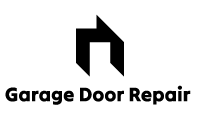Welcome to my Garage Door Repair blog! In this article, we will dive into the common question: What causes garage door hinges to break? Understanding these causes can help you prevent future breakdowns and ensure the longevity of your garage door system. Let’s explore the potential culprits together. Stay tuned for expert advice and practical tips!
Common Causes of Garage Door Hinge Breakage
Common Causes of Garage Door Hinge Breakage
Garage door hinge breakage is a common issue that many homeowners face. Understanding the causes of this problem can help prevent it from happening and save you from costly repairs. Here are some common reasons why garage door hinges may break:
1. Normal wear and tear: Over time, the continuous movement of the garage door can put strain on the hinges, causing them to weaken and eventually break.
2. Lack of lubrication: Proper lubrication is essential to ensure smooth operation of the garage door. Without regular lubrication, the hinges can become stiff and prone to breaking.
3. Excessive force: Applying too much force when opening or closing the garage door can put excessive strain on the hinges, leading to breakage.
4. Weather conditions: Extreme temperatures and weather conditions can cause metal hinges to expand and contract, eventually weakening them and making them more susceptible to breakage.
5. Accidental impacts: Accidentally hitting or bumping into the garage door can cause the hinges to break.
To prevent garage door hinge breakage, it’s important to regularly inspect and maintain your garage door. This includes lubricating the hinges, ensuring proper alignment, and avoiding excessive force when operating the door.
By taking proactive measures, you can minimize the risk of hinge breakage and ensure the long-term durability and functionality of your garage door.
Frequent questions
How can I prevent garage door hinges from breaking?
To prevent garage door hinges from breaking, you can follow these tips:
1. Maintain regular inspections: Inspect your garage door hinges regularly for any signs of wear and tear. Look for cracks, bending, or loose screws. Addressing these issues early can prevent further damage.
2. Tighten loose screws: Over time, the screws holding the hinges in place can become loose. Regularly check and tighten these screws to ensure the hinges are securely attached to the door and frame.
3. Lubricate the hinges: Lubricating the hinges with a silicone-based lubricant can help reduce friction and prevent excessive strain on the hinges. Apply lubricant to the moving parts of the hinge, including the pivot points.
4. Avoid excessive force: Be gentle when opening and closing your garage door. Avoid slamming it shut or using excessive force when operating the door. This can put unnecessary pressure on the hinges and potentially cause them to break.
5. Replace worn hinges: If you notice any significant damage, such as cracks or bending, it may be necessary to replace the hinges. Worn hinges are more likely to break under stress, so replacing them promptly can help prevent further damage.
By following these preventive measures, you can help prolong the lifespan of your garage door hinges and avoid unexpected breakdowns.
Are there any common signs that indicate garage door hinges are about to break?
Yes, there are several common signs that indicate garage door hinges are about to break.
1. Squeaking or grinding noise: If you hear unusual noises when opening or closing your garage door, it could be a sign of worn-out hinges.
2. Difficulty in opening or closing: If your garage door is becoming increasingly difficult to open or close, it could be due to faulty hinges.
3. Visible wear and tear: Inspect the hinges for any visible signs of damage such as loose or missing screws, rust, or cracks.
4. Uneven movement: If your garage door doesn’t move smoothly or seems to sag on one side, it may indicate hinge problems.
5. Door misalignment: Hinges play a crucial role in keeping the garage door aligned. If you notice gaps or misalignment between the door and the frame, it could be a sign of hinge issues.
If you notice any of these signs, it’s best to contact a professional garage door repair service to inspect and replace the hinges if necessary.
What are the main reasons for garage door hinge failure?
Garage door hinge failure can be caused by several factors. One of the main reasons is wear and tear over time. The constant opening and closing of the garage door puts strain on the hinges, causing them to eventually fail.
Another common cause of hinge failure is poor maintenance. If the hinges are not regularly lubricated and inspected for damage, they can become stiff or rusted, leading to their failure. It is important to regularly clean and lubricate the hinges to ensure their proper functioning.
Damage from accidents or external forces can also lead to hinge failure. For example, if a vehicle accidentally hits the garage door, it can damage the hinges and cause them to break or become misaligned.
Finally, improper installation of the hinges can also contribute to their failure. If the hinges are not properly aligned or securely attached to the door and the frame, they may wear out more quickly or break under stress.
In order to prevent hinge failure, regular maintenance and inspection are crucial. Lubricating the hinges, checking for signs of damage, and ensuring proper installation can help prolong the lifespan of the hinges and prevent unexpected failures.
In conclusion, understanding the causes of garage door hinge breakage is crucial for homeowners in need of garage door repair. By identifying and addressing these issues promptly, such as wear and tear, lack of lubrication, or excessive weight on the door, homeowners can prevent further damage and expensive repairs. Regular inspection and maintenance, along with seeking professional help when needed, will ensure that your garage door hinges remain strong and reliable for years to come.
